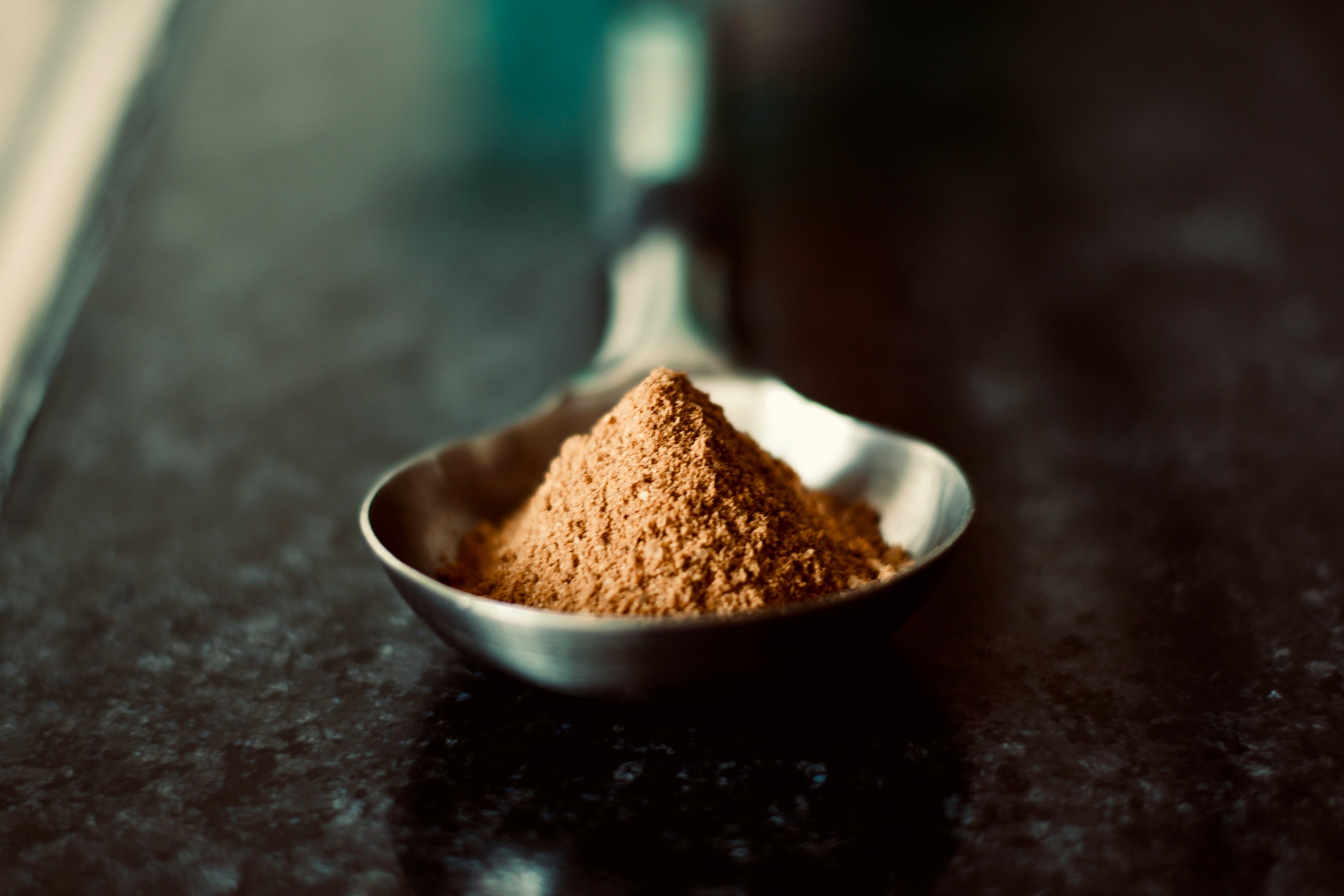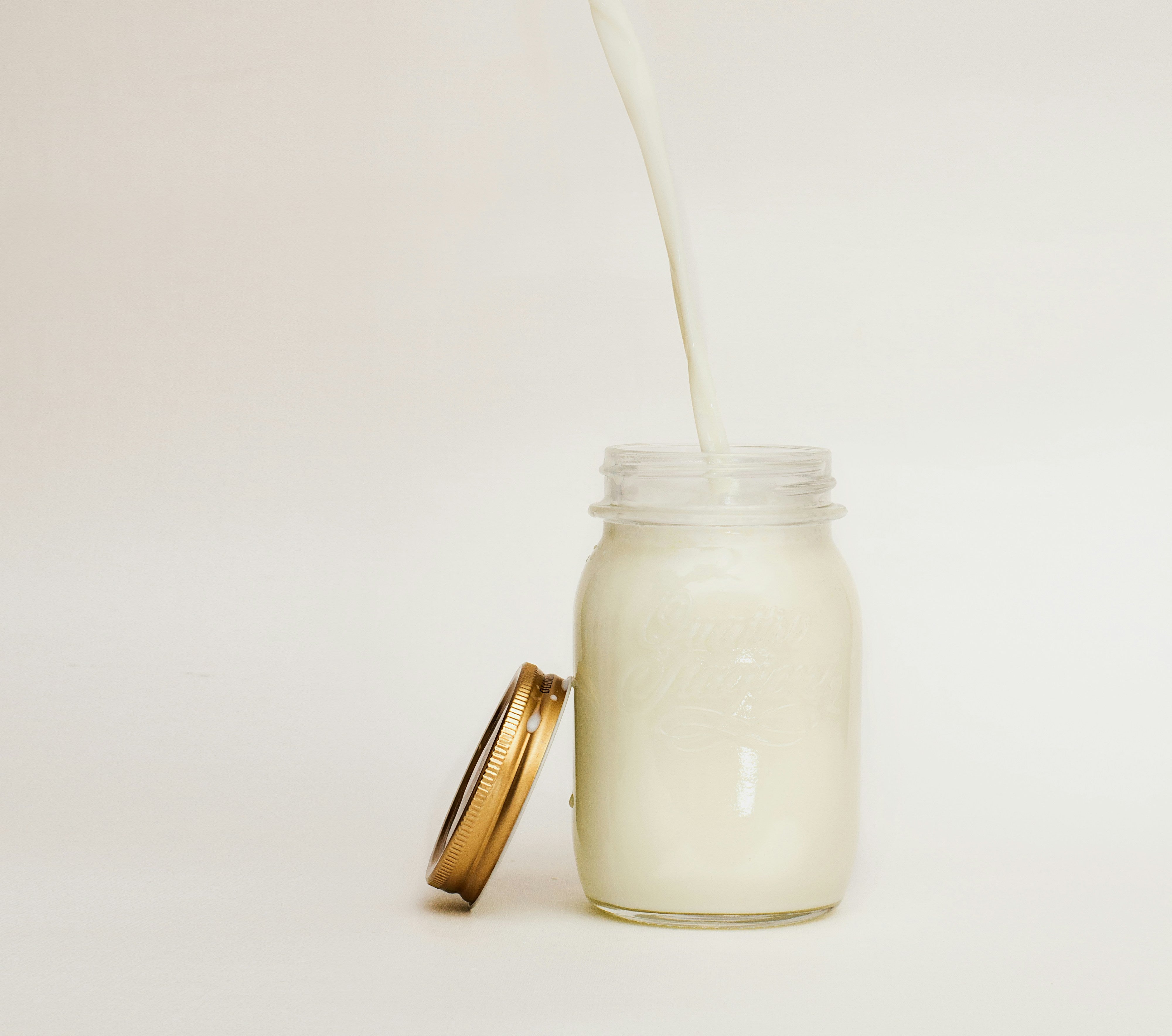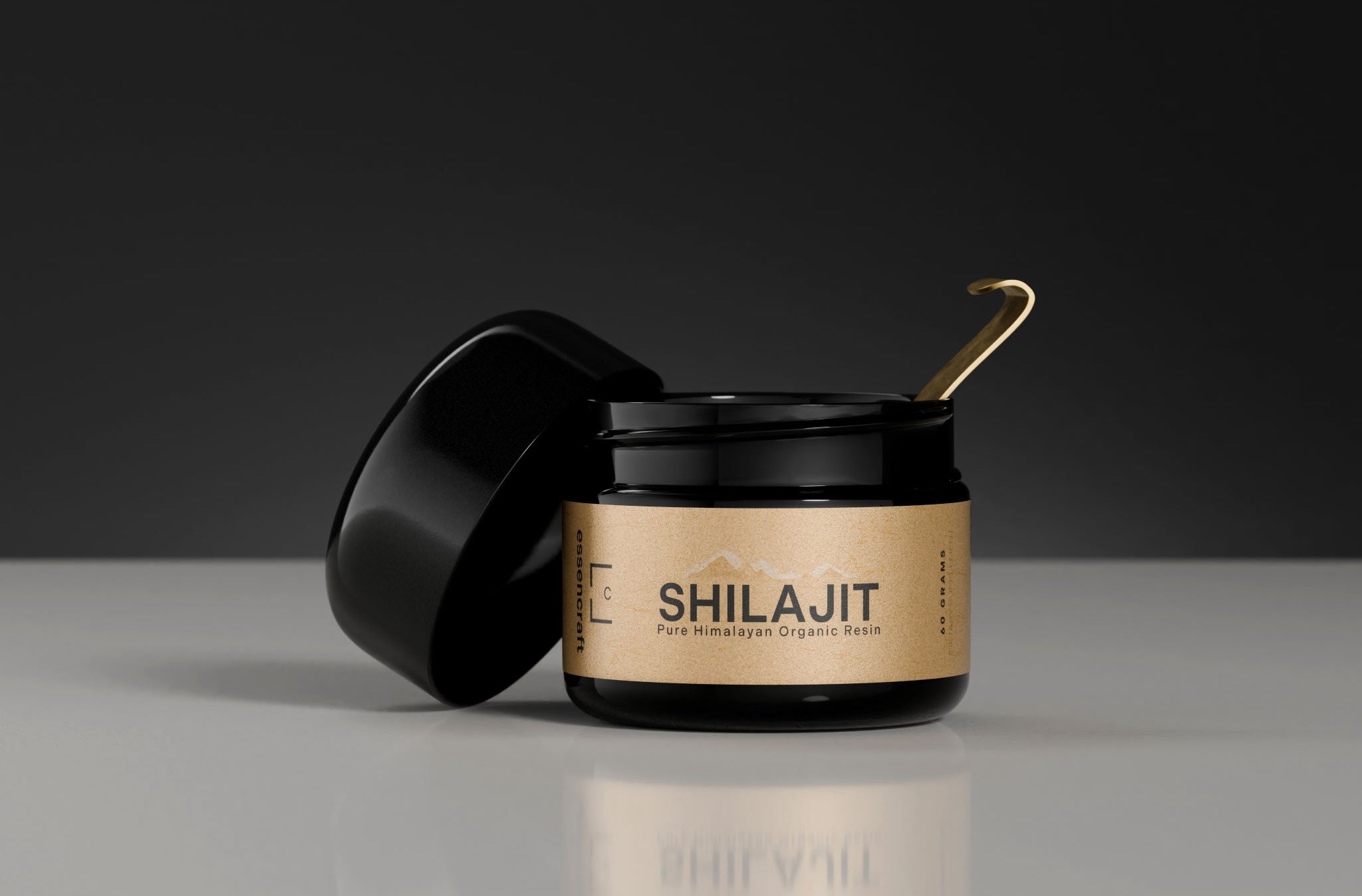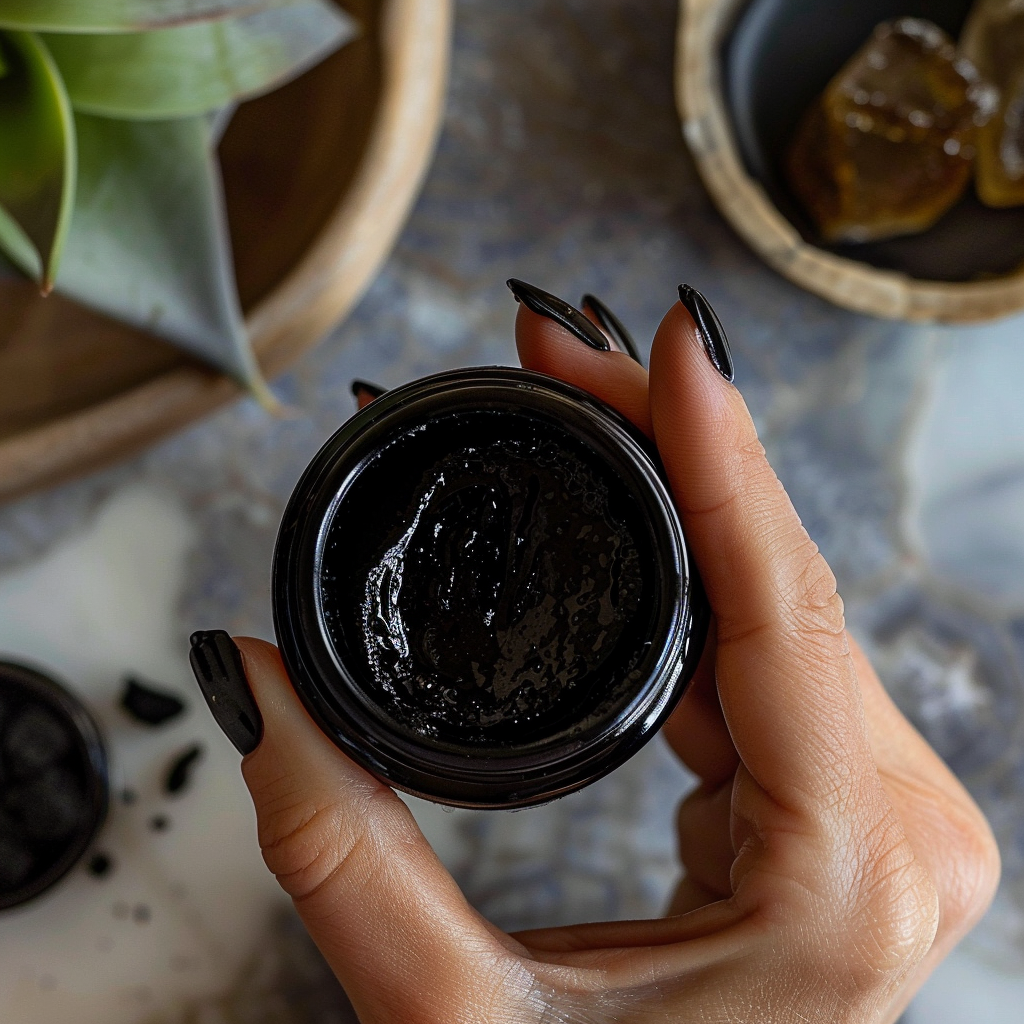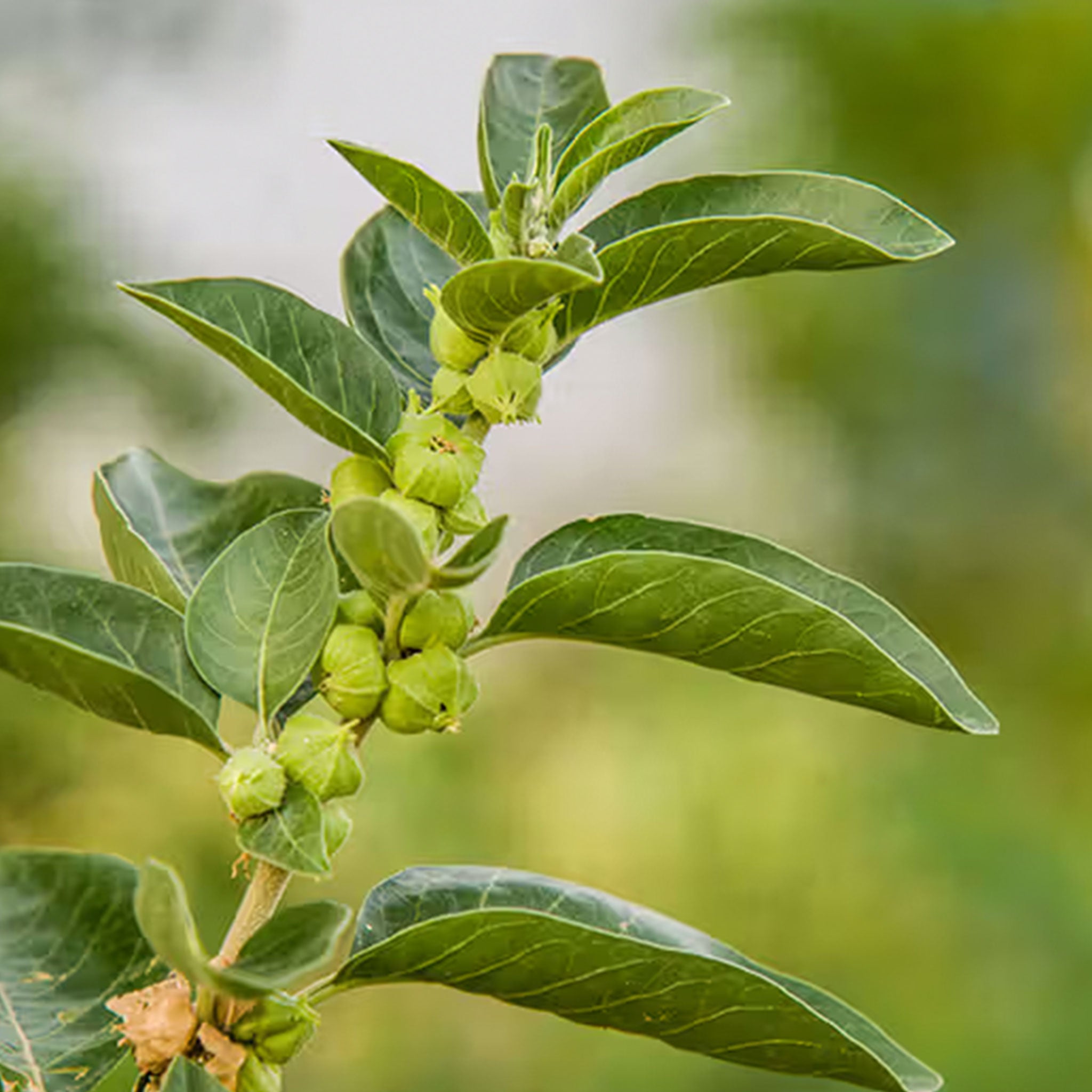What Are The 85 Minerals in Shilajit? Explained
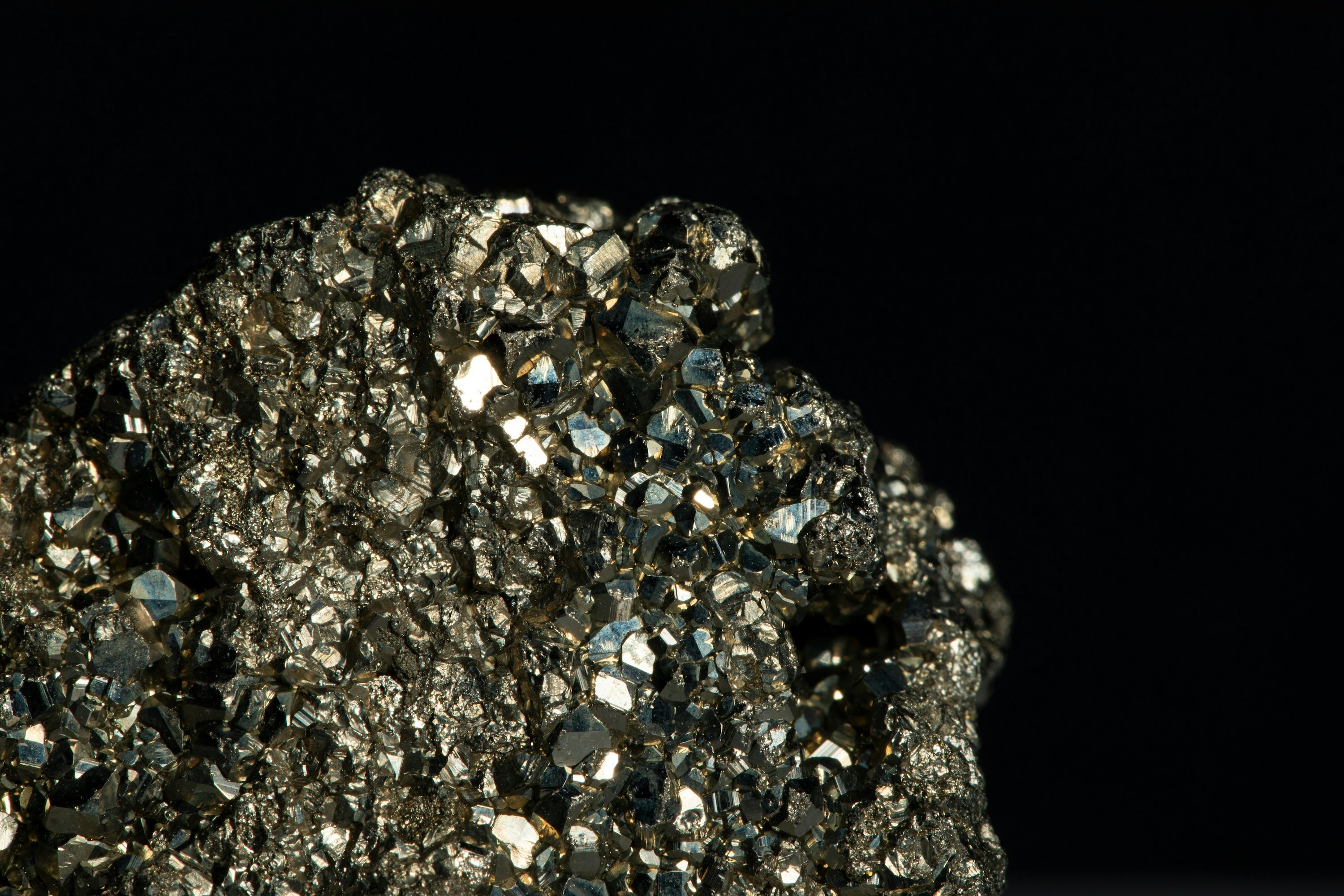
Shilajit is a sticky, tar-like resin that seeps from the cracks of rocks in high mountain ranges, particularly the Himalayas. It forms over centuries through the decomposition of plants.
This high-quality Himalayan Shilajit is full of nutrients like minerals, fulvic acid, humic acid, and other bioactive compounds. But what are the 85 minerals in Shilajit that make it so powerful? Below we’ll explore the full list and their benefits.
What Minerals Are in Shilajit?
Here is a list of minerals and trace minerals that contribute to its powerful health benefits:
- Aluminum (Al): A trace element that plays a role in several enzymatic processes within the body. In Shilajit, aluminum helps support the overall composition and balance of minerals.
- Antimony (Sb): A trace element that contributes to the antioxidant properties of Shilajit, supporting cellular protection from oxidative stress.
- Barium (Ba): Helps regulate the balance of electrolytes in the body, contributing to Shilajit's ability to support hydration and overall cellular function.
- Beryllium (Be): Synthesizes certain enzymes and supports the immune system, adding to Shilajit's immune-boosting properties.
- Bismuth (Bi): A trace element that may have antimicrobial properties, contributing to Shilajit's ability to combat harmful bacteria.
- Boron (B): Essential for bone health and the metabolism of certain minerals, boosting Shilajit's support for healthy bones and joints.
- Calcium (Ca): A critical mineral for maintaining strong bones and teeth and supporting muscle function. Shilajit's calcium content contributes to overall bone health.
- Carbon (C): A critical component of organic molecules in Shilajit, playing a crucial role in forming fulvic and humic acids.
- Cerium (Ce): A rare earth element in Shilajit that supports cellular function and contributes to the overall mineral balance.
- Chromium (Cr): Essential for glucose metabolism and insulin sensitivity, supporting healthy blood sugar levels and energy production in Shilajit.
- Cobalt (Co): Necessary for producing vitamin B12, vital for maintaining healthy nerves and red blood cells. Its presence in Shilajit contributes to overall well-being.
- Copper (Cu): An essential trace mineral involved in various enzymatic processes, supporting collagen and elastin production for healthy skin and connective tissue. It also helps maintain a healthy immune system and contributes to the antioxidant properties of Shilajit.
- Dysprosium (Dy): A rare earth element in Shilajit that contributes to mineral composition and balance.
- Erbium (Er): Another rare earth element in Shilajit, contributing to the mineral balance and overall composition.
- Europium (Eu): A rare earth element in Shilajit that plays a role in the mineral balance and composition of the substance.
- Fluorine (F): Essential for maintaining healthy teeth and bones. Its presence in Shilajit contributes to overall bone health.
- Gadolinium (Gd): A rare earth element that contributes to Shilajit's mineral balance and composition.
- Gallium (Ga): A trace element that supports enzymatic processes and immune function, contributing to the overall health benefits of Shilajit.
- Germanium (Ge): A trace element that may have immune-boosting properties and support overall cellular health. Its presence in Shilajit contributes to its health-promoting effects.
- Gold (Au): A trace element that may have anti-inflammatory properties, supporting Shilajit's ability to reduce inflammation and promote overall well-being.
- Hafnium (Hf): A trace element that contributes to Shilajit's overall mineral composition and balance.
- Holmium (Ho): A rare earth element in Shilajit, playing a role in its mineral balance and composition.
- Indium (In): A trace element that supports hormonal balance and contributes to Shilajit's adaptogenic properties.
- Iodine (I): Essential for thyroid function and the production of thyroid hormones, which regulate metabolism and energy levels. Its presence in Shilajit supports overall endocrine health.
- Iridium (Ir): A trace element that contributes to Shilajit's overall mineral balance and composition.
- Iron (Fe): Essential for producing hemoglobin and transporting oxygen in the blood. Shilajit's iron content supports healthy energy levels and overall well-being.
- Lanthanum (La): A rare earth element that contributes to Shilajit's mineral balance and composition.
- Lead (Pb): Present in trace amounts in Shilajit and is carefully monitored during purification to ensure safety.
- Lithium (Li): A trace element that may support mood stability and contribute to Shilajit's overall health benefits.
- Lutetium (Lu): A rare earth element that contributes to Shilajit's overall mineral composition and balance.
- Magnesium (Mg): Essential for various physiological processes, including muscle and nerve function, energy production, and protein synthesis. Its presence in Shilajit contributes to overall health and well-being.
- Manganese (Mn): A trace element that supports various enzymatic processes, antioxidant activity, and bone health. It is a vital component of Shilajit's health benefits.
- Mercury (Hg): Present in trace amounts in Shilajit and is carefully monitored during purification to ensure safety.
- Molybdenum (Mo): A trace element that supports various enzymatic processes and contributes to Shilajit's overall health-promoting properties.
- Neodymium (Nd): A rare earth element that contributes to Shilajit's mineral balance and composition.
- Nickel (Ni): A trace element involved in various enzymatic processes and supports overall health. Its presence in Shilajit contributes to its health-promoting effects.
- Niobium (Nb): A trace element that contributes to Shilajit's overall mineral composition and balance.
- Osmium (Os): A trace element that contributes to Shilajit's mineral balance and composition.
- Palladium (Pd): A trace element that supports various enzymatic processes and contributes to Shilajit's overall health benefits.
- Phosphorus (P): Essential for bone health, energy production, and cell function. Its presence in Shilajit supports overall well-being.
- Platinum (Pt): A trace element that contributes to Shilajit's overall mineral composition and balance. It may also have antioxidant properties, supporting cellular health.
- Potassium (K): Crucial for maintaining proper fluid balance, nerve function, and muscle contraction. Its presence in Shilajit contributes to overall health and well-being.
- Praseodymium (Pr): A rare earth element that contributes to Shilajit's mineral balance and composition.
- Rhenium (Re): A trace element that contributes to Shilajit's overall mineral composition and balance.
- Rhodium (Rh): A trace element that supports various enzymatic processes and contributes to Shilajit's overall health benefits.
- Rubidium (Rb): A trace element that contributes to Shilajit's overall mineral composition and balance.
- Ruthenium (Ru): A trace element that contributes to Shilajit's mineral balance and composition.
- Samarium (Sm): A rare earth element that contributes to Shilajit's overall mineral composition and balance.
- Scandium (Sc): A trace element that contributes to Shilajit's overall mineral composition and balance.
- Selenium (Se): An essential trace element with antioxidant properties that support immune function and overall health. Its presence in Shilajit contributes to its health-promoting effects.
- Silicon (Si): A trace element that supports the synthesis of collagen and elastin, promoting healthy skin and connective tissues. Its presence in Shilajit contributes to overall well-being.
- Silver (Ag): A trace element that may have antimicrobial properties, contributing to Shilajit's potential ability to combat harmful bacteria.
- Sodium (Na): Essential for maintaining proper fluid balance, nerve function, and muscle contraction. Its presence in Shilajit contributes to overall health and well-being.
- Strontium (Sr): A trace element that supports bone health and contributes to the overall health benefits of Shilajit.
- Sulfur (S): A crucial component of various amino acids and proteins, playing a critical role in detoxification processes and overall health. Its presence in Shilajit supports overall well-being.
- Tantalum (Ta): A trace element that contributes to Shilajit's overall mineral composition and balance.
- Tellurium (Te): A trace element that contributes to Shilajit's overall mineral composition and balance.
- Terbium (Tb): A rare earth element that contributes to Shilajit's mineral balance and composition.
- Thallium (Tl): A trace element that contributes to Shilajit's overall mineral composition and balance.
- Thorium (Th): A trace element that contributes to Shilajit's overall mineral composition and balance.
- Thulium (Tm): A rare earth element that contributes to Shilajit's mineral balance and composition.
- Tin (Sn): A trace element that contributes to Shilajit's overall mineral composition and balance.
- Titanium (Ti): A trace element that contributes to Shilajit's overall mineral composition and balance.
- Tungsten (W): A trace element that contributes to Shilajit's overall mineral composition and balance. It plays a role in various enzymatic processes, supporting overall health.
- Uranium (U): A trace element that contributes to Shilajit's overall mineral composition and balance. It is carefully monitored during the purification process to ensure safety.
- Vanadium (V): A trace element that supports insulin sensitivity and healthy blood sugar levels, contributing to the overall health benefits of Shilajit.
- Ytterbium (Yb): A rare earth element that contributes to Shilajit's mineral balance and composition.
- Yttrium (Y): A trace element that contributes to Shilajit's overall mineral composition and balance.
- Zinc (Zn): An essential trace element that supports immune function, wound healing, and overall health. Its presence in Shilajit contributes to its health-promoting properties.
- Bismuth (Bi): A trace element in Shilajit that may exhibit antimicrobial properties. Its presence in Shilajit may aid in combating harmful bacteria, supporting the immune system, and maintaining a healthy gut microbiome.
- Cadmium (Cd): A trace element in Shilajit in minimal amounts. It is carefully monitored during purification to ensure safety, as excessive exposure can be toxic. However, in small quantities, cadmium may contribute to the overall mineral balance in Shilajit.
- Cesium (Cs): A trace element in Shilajit that may contribute to the overall mineral composition and balance. Its presence in Shilajit may play a role in various enzymatic processes and support cellular health.
- Gallium (Ga): A trace element in Shilajit that contributes to mineral composition and balance. It may also have anti-inflammatory and immunomodulatory properties, supporting the immune system and overall health.
- Hafnium (Hf): A trace element that contributes to Shilajit's overall mineral composition and balance. Although its specific role in Shilajit is poorly understood, it may play a role in various enzymatic processes, supporting overall health.
- Lanthanum (La): A rare earth element that contributes to Shilajit's mineral balance and composition. Its presence may support Shilajit's complex structure and synergistic effects, boosting its overall health benefits.
- Palladium (Pd): A trace element in Shilajit that contributes to the overall mineral composition and balance. It may also play a role in various enzymatic processes, supporting overall health and well-being.
- Rhenium (Re): A trace element that contributes to Shilajit's overall mineral composition and balance. Its presence may support Shilajit's complex structure and synergistic effects, adding to its comprehensive health benefits.
- Rubidium (Rb): A trace element in Shilajit that contributes to the overall mineral composition and balance. It may play a role in various enzymatic processes and support cellular health as well.
- Samarium (Sm): A rare earth element that contributes to Shilajit's mineral balance and composition. Its presence may support Shilajit's complex structure and synergistic effects.
- Scandium (Sc): A trace element that contributes to Shilajit's overall mineral composition and balance. Although its specific role in Shilajit is poorly understood, it may play a role in various enzymatic processes, supporting overall health.
- Thallium (Tl): A trace element in Shilajit that contributes to the overall mineral composition and balance. It may play a role in various enzymatic processes and support cellular health.
- Thorium (Th): A trace element that contributes to Shilajit's overall mineral composition and balance. Although its specific role in Shilajit is poorly understood, it may play a role in various enzymatic processes, supporting overall health.
- Zirconium (Zr): A trace element present in Shilajit that contributes to the overall mineral composition and balance. Its presence may support the complex structure and synergistic effects of Shilajit.
- Tin (Sn): A trace element found in Shilajit that contributes to the overall mineral composition and balance. It may play a role in various enzymatic processes and support cellular health.
- Holmium (Ho): A rare earth element present in Shilajit that contributes to the overall mineral composition and balance. Its presence may support the complex structure and synergistic effects of Shilajit.
These minerals in Shilajit work together to provide various health benefits. Though present in small quantities, these trace elements play multiple roles in enzymatic processes, cellular health, and other vital functions.
The Benefits of Trace Minerals
Minerals are essential for the proper functioning of the body. They are important for many bodily functions like enzyme activity, hormone production, and keeping bones and teeth strong. The 85 minerals and trace minerals in Shilajit provide many health benefits.
Here’s what a few people have shared about their experience with our Shilajit:


What is the Best Shilajit to Buy?
When looking for Shilajit, it's essential to choose a product that is pure, potent, and sourced from the best locations. Here are some tips to help you find top-rated Shilajit:
- Get Shilajit from the high-altitude regions of the Himalayas, where it is known to be the purest and most potent.
- Look for Shilajit that is contaminant-free and has undergone testing for heavy metals and other impurities.
- Shilajit is available in resin, powder, and capsule forms. Resin is the most traditional and potent form, but choose the one that best suits your needs.
- Choose a reputable brand that provides transparent information about sourcing, purity, and potency.
By choosing Essencraft, you can be confident that you’re getting Shilajit that meets all these criteria, providing you with a safe, pure, and highly effective supplement.
After trying our pure, Himalayan Shilajit, another customer said:

Interested in Trying Shilajit?
From boosting energy and stamina to supporting cognitive function and promoting healthy aging, the Himalayan Shilajit benefits are vast. Ready to experience the powerful benefits of Shilajit? Get yours from our online shop now!
References:
- Stohs SJ. Safety and efficacy of Shilajit (Mumie, Moomiyo). Phytother Res 2014; 28(4): 475-9. doi:10.1002/ptr.5018.
- Al-Salman F, Redha AA, Al-Zaimoor Z. Inorganic analysis and antioxidant activity of Shilajit. Int J Sci Res Chem Sci 2020; 7(3): 5-10.
- Carrasco-Gallardo C, Guzmán L, Maccioni RB. Shilajit: A natural phytocomplex with potential procognitive activity. Evid Based Complement Alternat Med 2012; 2012: 674142. doi:10.1155/2012/674142.
- Schepetkin IA, Xie G, Jutila MA, Quinn MT. Complement-fixing activity of fulvic acid from Shilajit and other natural sources. Phytother Res 2009; 23(3): 373-84. doi:10.1002/ptr.2635.


